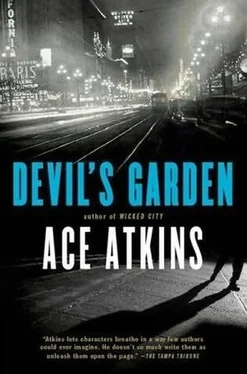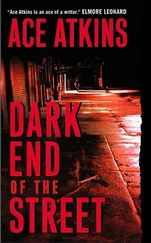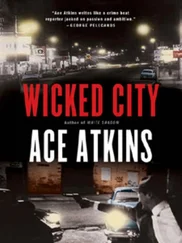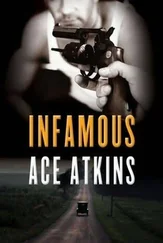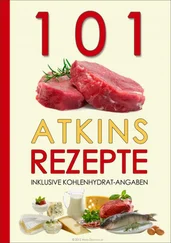Roscoe did not move. He could not breathe.
He felt McNab’s disappointment as the old man falsely gathered his papers, making motions, actions while he tried to make sense of what had just happened, like a man in shock after being run over by a bus. Roscoe leaned in and said, “I want to see the Pinkerton.”
“There are a dozen Pinkertons on your case, Roscoe.”
“I want the tall one. The thin man. The one who came south.”
“May I ask why?”
SAM WAS BACK on the deck of the Sonoma, working in the heated bowels of the ship, shirtsleeves rolled to the elbow, only taking a break for a quick smoke, checking in with the other ops to see if they’d found anything. There was a commotion down below on the pier where flashlights worked around the dark green water and on the mooring lines. A man in a diving suit had been dropped a half hour ago, an air pump chugging away, the lifeline running down into the black depths. Sam checked his watch. It was past nine.
He hadn’t eaten since morning.
They’d found some of the coin, the robbers dropping the strongboxes over the side of the ship suspended from hemp rope. More coin was found in drainage pipes, raining down on the heads of sailors when an old salt unplugged them to lay down a coat of paint on the deck.
There was still twenty-five thousand somewhere, but Sam figured they were all going through the motions now. The money long gone. A seaman by the name of Ducrest having disappeared hours ago.
He returned belowdecks, the ops being paid by Seamen’s Bank to go room by room, slowly down each level. And now Sam was back near the engine room, grease on his hands and forearms, still smoking a cigarette, checking out ventilation ducts. He ran a flashlight into them and pinged them with a rusted wrench, duct by duct, room by room. He wanted to get home.
Two hours later, there was a sound. A solid dull thud instead of a ping.
He used the flashlight to look into the shaft. Nothing. He reached deep into the grimy, oily shaft, stretching with his right arm and fingers until he touched the brass top of a fire hose and grabbed hold, pulling it out.
Sam was alone. Two levels down from the main deck.
The hose was heavy and full. He unscrewed the nozzle and found a continuous trail of loosely packed gold coins that jangled with heft in his hand.
When he glanced back up, he could see an image of himself in the glass of a porthole. Grease covered his face like war paint. He used a handkerchief to clean himself off, some of the white cloth spotted in blood. He looked back at himself and then lifted the hose back into the shaft, pushing it far back into the pipe and screwing it tight with a pocketknife.
He was back on deck when he saw a man he recognized as one of Arbuckle’s lawyers, the young one, Brennan. Brennan nodded at another nameless op and the op pointed over toward Sam.
Sam met Brennan halfway on the deck, still wiping grease off his hands. “Mr. Arbuckle would like to speak with you.”
“It’s a little late.”
“It wasn’t my idea.”
Sam checked the time again. Below, men were helping the fellow in the diving suit out of the water, a great brass helmet on his head that they had to remove with wrenches. The man had been out of air and took in great lungfuls when the helmet was removed.
“Where is he?”
“Waiting in the car.”
“What’s this about?”
“I haven’t a clue.”
“I’ve been reassigned.”
“This is important to Mr. Arbuckle,” Brennan said. “He’s having trouble sleeping.”
“Tough day in court?”
“The worst.”
“Okay,” Sam said. “Lead the way.”
Minta thinks you’re a good egg,” Roscoe said. “Minta is a sensible woman.” “That she is.”
There was a long silence between the two men in the rear of the Pierce-Arrow limousine. Roscoe was dressed in pajamas and a robe. He rolled another cigarette, fumbling around with the paper and tobacco until he got the thing made. The leather inside the cab reminded Sam of a fine saddle; it all smelled rich and oiled.
“Now we got that settled,” Sam said, “I need to get back to work.”
“I read about that gold,” Roscoe said. “They said it was a ‘Mystery at Sea.’ ”
“Not much of a mystery,” Sam said. “We found most of it.”
“You found the robbers?”
Sam shook his head.
“Can I call you Sam?”
“Sure.”
“Sam, I was set up.”
“I know.”
“Fred Fishback directed the whole thing. He arranged the trip, called the girls, and brought the booze. The son of a bitch blindsided me. All that crap he said on the stand about me asking for the key to the ladies’ changing room is a bunch of hooey.”
“Why?”
Roscoe looked out the window, the machine idling at Pier 35. A group of sailors passed his car, eyes wide with amazement at the fine machine. He smoked and shook his head. “I don’t know.”
“You remember me asking about you knowing Mr. Hearst?”
Roscoe didn’t say anything.
“Why’d you lie?”
“I said I’ve met the man once.”
“He’s taken an interest in you.”
Roscoe turned from the window, his profile in the glass.
“His bagman paid Fishback,” Sam said. “I saw it. That same man poisoned the woman who’d come to the city to testify on your behalf. Between Hearst and Brady, the facts will never be heard. The real truth has already been buried or burned up in an incinerator.”
Roscoe looked confused but nodded, and then nodded some more.
Sam leaned into the space between them. He checked his watch and rubbed his head.
“Why do you continue to protect him?”
Roscoe shook his head.
“He’s walking all over you,” Sam said. “Hearst is making you look like a fool. You keep on keeping whatever you know a secret and you’re headed to San Quentin. Why a grown man would want to be anyone’s whipping boy is beyond me. My ass would get sore after a while.”
Roscoe looked at him and Sam saw more rage than he expected. But the rage soon softened and he started to cry, and he was very open about it. Sam had never seen a grown man so open about weeping before another man. He looked like he was about ten, wiping the mess away with his fists.
“I’m not protecting Hearst,” he said. “I’m no one’s whipping boy.”
Sam leaned into the soft leather seats. He lit a cigarette, reached into the bar and poured himself a drink from a crystal decanter. “Jesus Christ,” Sam said, taking a long pull.
Roscoe reached over and poured him another.
“I could get used to this.”
“No, you couldn’t,” Roscoe said, not looking at him anymore but staring out the window and thinking. The hand-rolled cigarette burned between his fingers. His robe was silk and probably cost more than Sam’s suit and shirt and shoes put together. “All this makes you soft.”
“I left my hat on the boat,” Sam said, reaching for the door.
Roscoe held up his hand. “Hold on. Christ, let me think. I just don’t know. God damn. I don’t understand any of it. It’s making my head hurt.”
“It’s a simple story, Roscoe. You walked into a frame job and the frame job went really wrong. About as wrong as it can get. And that isn’t your fault. But to hold out on me with anything isn’t just pigheaded, it’s damn stupid.”
“Do you know that for the weeks I spent in that jail, all I did was try to remember what happened in that room?”
“What happened?”
“I couldn’t. I thought maybe I did kill her. I could imagine it. I could imagine me falling asleep on her, touching her too rough.”
Sam finished the glass.
“I’m so goddamn clumsy when I drink,” Roscoe said. “I wanted to die. If there had been a gun in that cell, I would’ve stuck it into my mouth. I convinced myself that I’d killed her. I read the stories and those stories rolled in my head. I saw myself crushing her. I didn’t really stop blaming myself until today. When Freddie turned on me, I knew it had been a frame job. He worked me goddamn perfectly. He arranged the sets, brought in the actors, and had it play out just like he’d written it.”
Читать дальше
